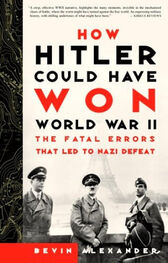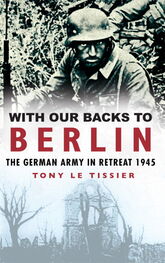Churchill personally might have felt that Britain was morally obliged to join the UN if the rest of the world had, but the firm rejection of the concept by Germany and the rest of Europe gave him the excuse he needed to say ‘NO’. Britain’s decision had been copied by other countries in the Empire, notably Australia, New Zealand and South Africa. Only Canada had succumbed to pressure from its southern neighbour.
As he celebrated in private with a whisky, he thought that he might retire before the next election. He had been in politics a long time. ‘ Another three or four years and I will become a full-time painter’, he promised himself.
BERLIN — 25 MAY
It gave von Altendorf great pleasure to report to the Council that he had received a letter from Khrushchev. The Supreme Soviet Council had ordered a fifty percent reduction in arms production throughout the Soviet Union, commencing 1 June that year. This would last for a period of six months to give Germany and Europe, together with — hopefully — China, Japan, and possibly the United States, sufficient time to agree a permanent arms limitation treaty with the Soviet Union.
The need for inspectors to verify matters was accepted. It was suggested that initially Germany and the Soviet Union work out an acceptable system between themselves, and this could then be put to all the other countries involved, for their consideration.
“Like everything with the Soviets, we cannot take for granted that we have a deal here. I am optimistic, but I am sure that somewhere along the way we will find obstacles before us. In the meantime, let us regard this as real progress.”
He also advised that an invitation had been received from Great Britain for the Chancellor to make a State visit to that country in October. This would coincide with the Chancellor’s investiture of the British honour being conferred on him by King George.
Chancellor Von Brauchitsch didn’t show it but he had felt deeply honoured by this award from the British King. He considered it one of the greatest moments in his life.
It was even possible it wouldn’t be raining in England in that month!
Von Altendorf mentioned that during a debate the previous week, the Dutch Government had concluded that, with the exception of the Caribbean territories, their colonies were becoming a liability. There had been signs of increasing nationalism, usually involving terrorism, and the individual colonial economies were suffering.
The Dutch wanted to shed them next year, before they became a drain on the home country.
One more item of interest was the fact that the Balkan republics appeared to be settling down. Reported incidents of political unrest or violence were at their lowest since Yugoslavia had split asunder two years earlier. Early days yet, but a positive sign.
The long awaited maiden test flight of the Komet would take place in mid-July, the Aviation Minister announced. His British counterpart would be there, together with Rolls Royce executives. Many representatives from various world airlines were expected. This would be an important day for the Anglo-German aircraft industry.
The Defence Minister announced that General Sieckenius’ munitions deal with Argentina seemed to have started something of an arms race on the South American continent. His Ministry, through General Sieckenius’ department, had authorised sales of equipment to Chile, Ecuador, Peru and Venezuela. All cash sales!
A request from Paraguay had been declined due to the repressive nature of the regime of President Stroessner. Stroessner’s father had been German, and his government was firmly anti-communist and pro-German, but this was insufficient to persuade von Mannstein of the desirability of supplying their regime with arms. Too many similarities with Hitler and the Nazis!
He also advised that India had obviously looked at the significant improvements taking place in the Bangladesh military, a potential enemy of theirs, and had requested a meeting with the German Defence Minister at his earliest convenience. Pakistan must have got wind of this and they too had requested a meeting. Could be a minefield!
Albert Speer delivered a glowing update on Germany’s armaments industry, which was now the biggest in the world. The need for selling munitions on credit had also diminished considerably. This appeared to be due to no small extent, to the activities of an American bank in which Deutsche bank had an interest.
The Mercantile Bank of California had created a market in securities issued by smaller countries to raise cash specifically to purchase German armaments. Speer mentioned that the idea for this had apparently originated from the brother of Baron von Altendorf’s son in law. A man who had already rendered great service to Germany through his innovative financing of a great number of German built aircraft.
He ended his report by saying that in the event of future arms limitations in Europe, this particular industry should be unaffected to a significant degree due to the great demand in South America, Asia, and soon, he believed, Africa.
“There will always be countries that want strong armed forces. As soon as they take steps towards this, their neighbours, feeling threatened, have no choice but to follow the same course of action.”
Speer also reported that the Anglo-German Atomic Energy Corporation expected its experimental nuclear reactor to produce the world’s first electricity from this source within the next twelve months. He stressed that this was only experimental, with probably only enough power produced to run a light bulb! The first commercial generation of electricity was planned for 1953 at the earliest.
BREMEN — JULY
The gleaming white Komet was standing on the airstrip being circled by the one hundred and fifty or so visitors, fascinated by the world’s first jet airliner. Standing proud on the aircraft’s tail fin were the painted crossed flags of Britain and Germany. Among the visitors were James Blackstone, Jamie MacLellan and Frank O’Donnell. The Rolls Royce engineers looked a little strained. They had been doing last minute checks into the early hours of the morning.
The Foreign Affairs, Aviation, Defence, Economics and Interior Ministers were there, as well as the British Minister of Aviation and the British Ambassador. Even old Hjalmar Schacht had shown up to witness his country’s latest achievement.
There was an air of expectancy. History was being made today. The first flight of the world’s first jet airliner. The beginning of a new era in public transportation.
At the appointed time the visitors were gently herded away from the aircraft. The test flight crew climbed aboard, conscious of the stares they attracted. The boarding steps were wheeled away, and everything was ready.
The Rolls Royce turbines started to turn. Slowly at first, but they were soon spinning with a powerful roar. The aircraft moved forward. It took several minutes for it to position itself facing the length of the runway. It was cleared for take-off by Focke-Wulf’s own control tower.
The roar of its four jets increased and aircraft was straining to leap forward. The pilot released the brakes. This was what the Komet was waiting for. It moved purposefully forward, all the while accelerating. Three quarters along the runway, exactly opposite where the visitors were positioned, it was airborne.
Most of the guests clapped, some gazed in wonder. The technicians, particularly the Rolls Royce engineers, looked on with relief. The Focke-Wulf executives saw the dollar signs.
Up in the sky the pilot took Komet 1 through a pre-determined unexciting set of manoeuvres. These lasted for only fifteen minutes before he gently brought her back down to land. The first flight of the world’s first jet powered airliner had gone without a hitch!
Читать дальше






